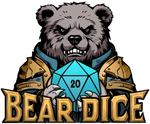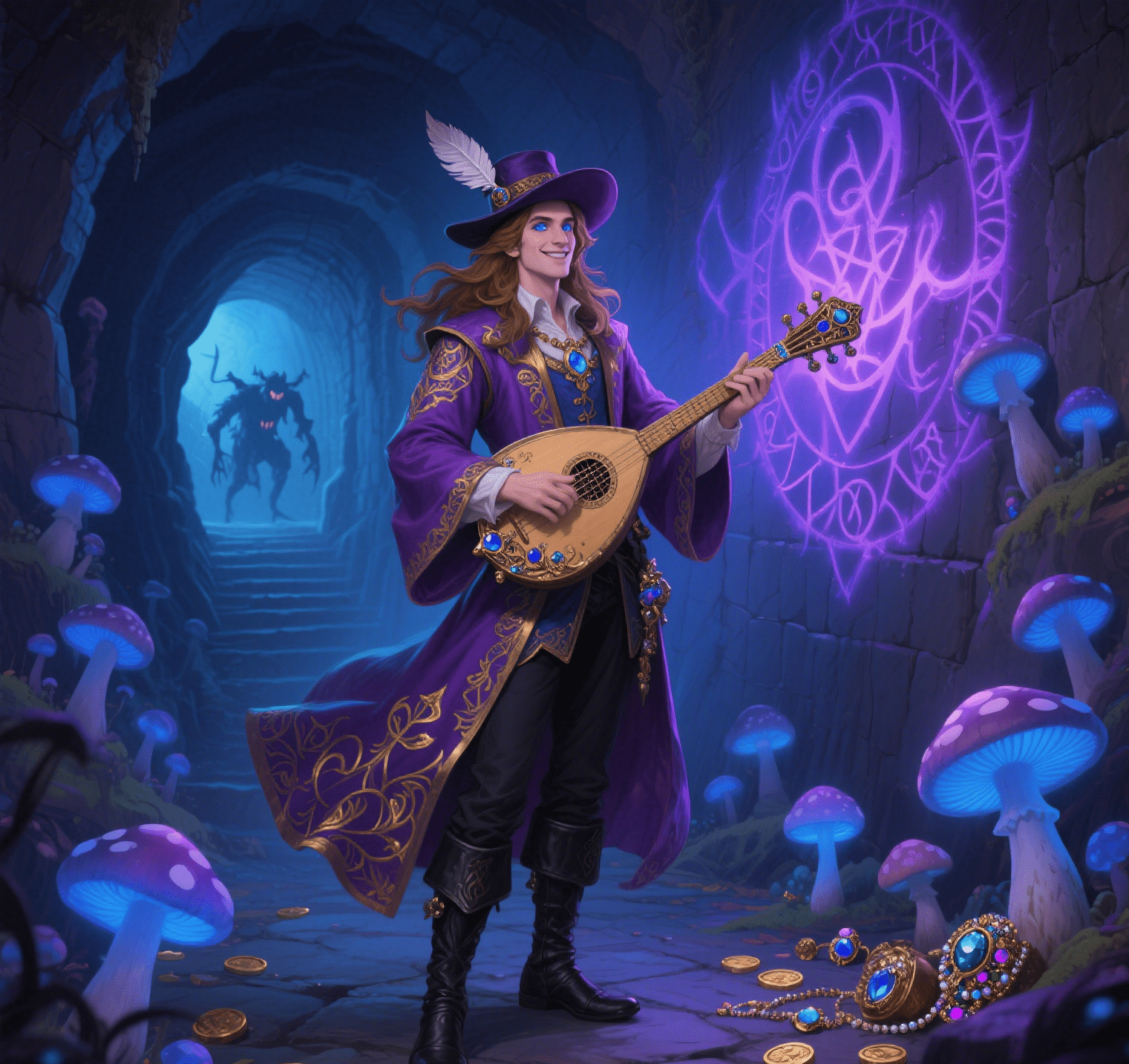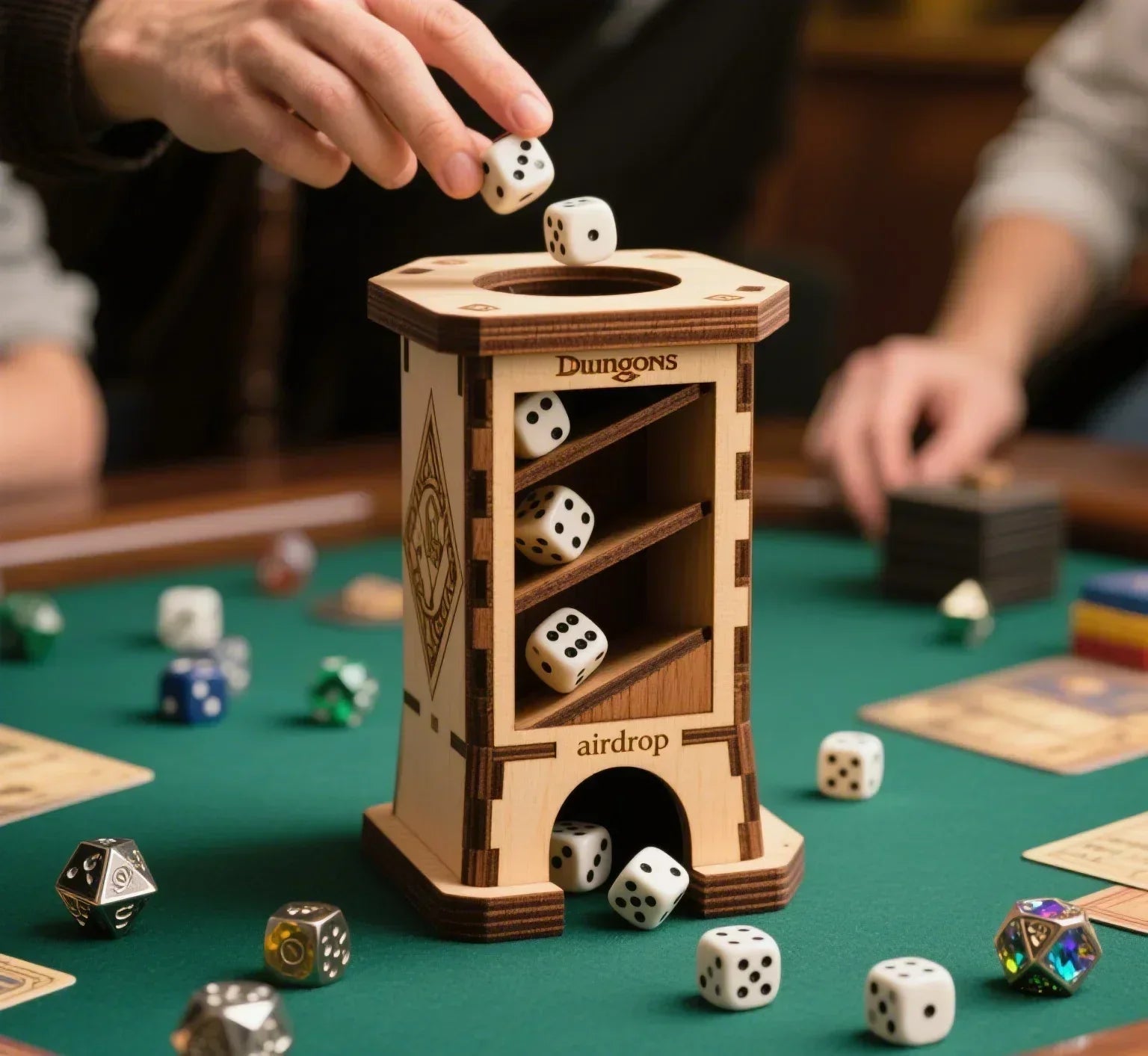Whether you want to sit around a table with a few friends at home, or plan to have a hardcore adventure online using Roll20 or Discord, as a DM (dungeon master), you are the director, referee, and storyteller of this fantasy journey.
But many people find it difficult to be a DM:
"I can't write the plot!"
"I'm afraid I can't keep the rhythm right and make the players bored!"
"What exactly do I need to prepare to run a complete DND?"
Don't panic, in fact, being a DND DM is not as difficult as you think. As long as you follow the steps, prepare the tools, and add a little creativity and sense of humor, you can also run a TTRPG adventure that will make people applaud!
Let's take a look at what steps you need to set up a DND game from scratch, what you need to prepare, and most importantly - how do you become a qualified DM?
Step 1: Clarify the number of players & style preferences
Before starting each DND campaign (long-term adventure), the first thing is not to buy books, not to write monsters, but to understand your players.
How many people do you plan to bring? Generally speaking, 3-5 people are the most ideal.
What style do they like? Comedy? Story? Combat? Puzzle?
Are there more new players or veterans? Should the game complexity be reduced?
Tips: Do a small survey and let everyone choose their preferred game style and rhythm. This will help you avoid a lot of embarrassment of "DM is excited, but players are confused".
Step 2: Choose adventure module (module VS self-created)
As a novice DM, it is recommended to start with official modules, such as the famous:
- Lost Mine of Phandelver
- Dragon of Icespire Peak
- Waterdeep: Dragon Heist
These modules are complete in content, clear in structure, and come with supporting maps and monster data, which can greatly reduce your preparation burden.
If you are a storyteller and a world-building master, you can also try to create your own adventures - but remember to start with a "small-scale plot" and don't design a multiverse + 300 years of history right away.
Step 3: DND DM Tool Preparation List
Now that you have selected the module, it's time to "get real" with the tools!
The following is a basic equipment list for novice DMs. Whether you are running online or offline, there are corresponding suggestions👇
| Tools / Props | Function | Online Alternatives |
|---|---|---|
| Polyhedral dice | Determines battles and skill judgments | DND Beyond, Roll20 built-in dice simulator |
| Player's Handbook (PHB) | Provides roles, skills, and rules | SRD free documentation available |
| DM Guide | Teach you how to tell stories and design battles | Official wiki or forum |
| Monster Guide | Easy to design encounters | Online monster library (Kobold Fight Club) |
| DM Board | Hide your secret information | Split screen |
| Battle Map & Character Micromodels | Visualizes battles | Roll20 built-in map grid |
| NPC Cards, Item Cards | Quickly calls up materials | Notion / OneNote organization |
| DM Notepad | Records plot development and player behavior | Google Docs, Obsidian, etc. |
Let your control power "shake the table" - giant D20 dice
If you want to make the "Boss Battle" or the key throwing moment more special, why not try a giant D20 dice (such as 50mm/60mm metal or resin)!
💥 Eye-catching as soon as it appears, with full visual impact
🐉 Multiple styles: liquid core dragon eye, cat dice, etc., are all super suitable for DM to roll key events or NPC skills!
Suitable for key throws, DM plot development turning points, ritual moments! Make your control position unshakable!
👉 Click here to view our giant D20 collection ››
🎒Recommended additional equipment:
- Small whiteboard + erasable pen
- Hourglass / countdown app: enhance the sense of rhythm
- Background music player (YouTube / Spotify) enhances immersion
- DM notebook: can help you gradually build a world view, organize NPC names, record battle rounds and player operations
Step 4: Character Setting & Background Connection
When players start to build characters, you need to guide them:
Create a reasonable background story
There is a certain connection between each other, such as "you grew up in the same village" or "just formed a team in the tavern"
Help them understand the character's motivation: for money? For fame? To save the world?
DM Tips: You can design several "background hooks" in advance and encourage players to choose from them or expand freely, so that it is easier to involve them in the main storyline!
Step 5: Make an encounter table & battle map
This step is like preparing a "contingency list" for players.
You can prepare:
- A travel encounter table (snowstorm? Bandits? Old friends suddenly appear?)
- Several key scene maps: such as villages, caves, castles, etc.
- Monster preset data: no need to think about it on the spot, especially when fighting BOSS, it is super critical!
Roll20, Inkarnate, Dungeon Scrawl and other tools can quickly generate battle maps.
Step 6: Organize schedules & establish online communication platforms
"When can we continue to run the next section?"
This is the most common soul-searching question every DM receives. So you have to:
- Synchronize the time (you can use Doodle to arrange voting)
- Create a group: WeChat group, QQ group, Discord server
- Fixed rhythm: once a week? Once every two weeks? Don't be too long, otherwise you will forget the plot
It is recommended to open a small channel to archive character cards, world settings, historical reviews and other materials, so that novice players can have a place to catch up!
📚 Additional recommendation: What are the modules suitable for novice DMs?
The following modules are super suitable for novice DMs to get started:
| Name | Type | Recommended Reasons |
|---|---|---|
| Lost Mine of Phandelver | Classic entry module | Compact plot, clear setting |
| Dragon of Icespire Peak | Suitable for single player/team | Strong scalability |
| Frozen Sick (free) | Short adventure | Fast pace, suitable for teaching |
| Waterdeep: Dragon Heist | Urban investigation | Must-have for social and plot lovers |
The 10 most frequently asked questions by DM novices (FAQ)
Q1: I have never played DND, can I be a DM?
A: Of course you can! As long as you are willing to prepare and tell stories, the threshold for DM is not that high. Choose a module that is friendly to beginners + refer to our article, and take it step by step.
Q2: Does DM have to be proficient in the rules?
A: No. You only need to master the basic judgment (ability value, dice logic) and the module outline, and the rest can be checked while hosting. Players don’t mind you flipping through books, they are only afraid that you dare not speak.
Q3: What books does DM need to buy?
A: It is recommended to prepare the "Player's Handbook (PHB)" and modules first, and the monster illustrations and DM guides can be supplemented by budgets, or you can check SRD free resources online.
Q4: Can you play without dice?
A: Yes, many platforms (such as Roll20, DND Beyond) have built-in dice simulators, but the feel and ritual of physical dice cannot be replaced online!
Q5: How detailed background settings does DM need to prepare?
A: It doesn’t need to be at the level of a world encyclopedia, as long as you can explain the current plot motivation, scene logic and NPC motivation.
Q6: What if the rhythm of the group is not well controlled?
A: The DM can set up a simple time management mechanism (such as an hourglass), or use the DM notebook we recommend to list the battle rhythm points and social interaction points in advance.
Q7: What if the players don’t cooperate?
A: Explain in advance that "everyone's goal is to have fun together on an adventure", and communicate privately if there are any problems. If the problem persists, it's time to change players (laughs).
Q8: Which platform is recommended for online group running?
A: Roll20 is the most common free platform, with built-in maps, character cards, dice and other functions; Discord can also be used for voice, map sharing, and channel archiving.
Q9: Can I participate in the game as a DM?
A: You can "bring an NPC with you", but be careful not to let this NPC dominate the plot. The focus of the DM is to make the player the protagonist.
Q10: Is there any way to make preparation easier?
A: Of course! Using our DM notebook to record world settings, encounter tables and NPC data can greatly reduce your preparation time before each hosting. And don’t forget a Giant D20 to add epic drama to your rolls!
📚 Want to Level Up Your DM Skills? Here are some top resources we highly recommend:
- Explore the official D&D Basic Rules for free — perfect for learning the core mechanics.
- Try Kobold Fight Club to build balanced and exciting monster encounters with ease.
- Need inspiration? Donjon offers amazing random generators for adventures, dungeons, and NPCs.
- Join thousands of fellow DMs at r/DMAcademy to ask questions and swap ideas.
These tools and communities are trusted by tens of thousands of DMs and will make your journey easier and more exciting!
✅ Summary: A good adventure starts with orderly preparation!
You don’t have to be a master of rules, nor do you need to write a whole fantasy novel right away. As long as you are willing to use your brain, prepare well, and understand the players, you can become a great DM.
The secret to becoming a DND DM is:
- A methodical preparation process (like Step 1 to 6 in this article)
- The right tools (DND dice set, map, sound effect artifact)
- The most important thing is a heart that wants everyone to have fun!



